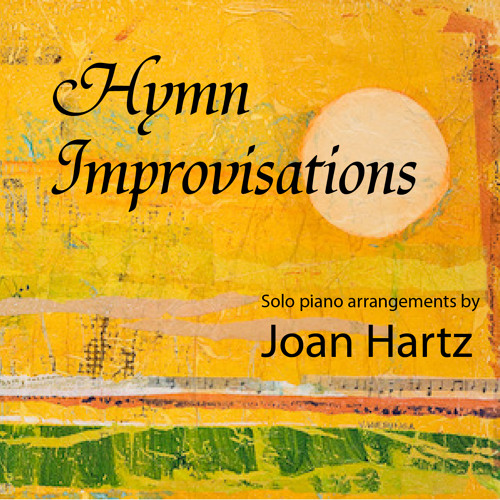The first two lines of George Herbert’s poem “Gratefulness,” a petitionary prayer to God, are often quoted at this time of year: “Thou that hast given so much to me, give one more thing: a grateful heart.” It’s a sweet quote, and it does capture the poem’s main thrust, but it deserves to be looked at it in the context of the eight-stanza whole to which it belongs.
“Gratefulness” by George Herbert
Thou that hast giv’n so much to me,
Give one thing more, a grateful heart.
See how thy beggar works on thee
By art.
He makes thy gifts occasion more,
And says, If he in this be crossed,
All thou hast giv’n him heretofore
Is lost.
But thou didst reckon, when at first
Thy word our hearts and hands did crave,
What it would come to at the worst
To save.
Perpetual knockings at thy door,
Tears sullying thy transparent rooms,
Gift upon gift, much would have more,
And comes.
This not withstanding, thou wentst on,
And didst allow us all our noise:
Nay thou hast made a sigh and groan
Thy joys.
Not that thou hast not still above
Much better tunes, than groans can make;
But that these country-airs thy love
Did take.
Wherefore I cry, and cry again;
And in no quiet canst thou be,
Till I a thankful heart obtain
Of thee:
Not thankful, when it pleaseth me;
As if thy blessings had spare days:
But such a heart, whose pulse may be
Thy praise.
_______________________________
In the poem the speaker boldly asks God to give him yet another gift: a spirit of gratitude. He then engages in lofty rhetoric in an attempt to convince God of the rightfulness of his request.
Here’s my paraphrase of Herbert’s words:
Stanzas 1–2. You who have already given me so much, give me just one more thing: a thankful heart. Observe my clever reasoning: The gifts you’ve given require something additional (i.e., thankfulness); if you don’t give that to me, then you may as well not have bothered giving me anything else.
Stanzas 3–4: You knew that when you created man, we would be forever reliant on your gifts. You knew it would mean our constant petitioning, lots of pleading tears, for more and more.
Stanzas 5–6: You graciously tolerate all our sighs and groans—more than that, you are happy to hear them, because they give you the opportunity to bless. So even though there are choirs of angels available for your listening pleasure, you tune in instead to our whining choruses. Out of love you receive us, despite our unrefined ways, into your throne room to make our case.
Stanzas 7–8: I beg you, please. I won’t shut up until you give me a thankful heart—and I don’t mean thankful only once in a while, as if your blessings were sparse and thankfulness, therefore, only sparsely needed. I mean a heart that pulses, every beat, with praise of you.
Perhaps the scenario of this poem seems a little ridiculous to you: no one need spend so much vigor on trying to persuade God of the virtues of gratefulness, as it’s a gift that’s so obviously within his will to give. But such farfetchedness was one of the hallmarks of seventeenth-century metaphysical poetry. In this case, it opens up space for praise.
In America every fourth Thursday of November—so this Thursday—is set aside as a day of thanksgiving on which we consciously acknowledge all the good things in our lives, and (at least the religious among us) their divine source.
Sometimes it’s hard to concede that all the blessings we enjoy originate from God. We like to think our financial security is the result of our smart investments and self-control; our latest job promotion or high test score, countless hours of hard work; our well-adjusted children, great parenting; and so on. If you ever find yourself with that attitude—and I often do—Herbert’s request is something you could pray: God, make me grateful to you; help me to see your hand at work in my life.


Thanks for sharing and paraphrasing this poem. I was lost on the first read, but now I not only understand but am touched; will definitely look into reading more Herbert. Happy Thanksgiving!
I’m so glad! This one took me a few reads too before I could get a grasp on it. Herbert is one of my favorite poets, and his Complete English Poems (published by Penguin) is a great book to have on your shelf. But because they’re in the public domain, you can also find most of them online. Here are a bunch: http://www.poetryfoundation.org/bio/george-herbert#about.
If you like George Herbert, you should strike up a conversation with Hannah Eagleson — she did her dissertation on some of his work and wrote this reflection on Herbert and prayer (http://blog.emergingscholars.org/2014/07/learning-prayer-from-george-herbert/).
Thank you for sharing your analysis. It really blessed me.
Pingback: Count your blessings: books for Thanksgiving | BLUE HARE MAGAZINE
I came across George Herbert’s Poem in my morning devotional reading. I googled the poem and came across your analysis of the poem. Thank you for sharing. This peom came at a needed time in my life. It is amazing how our beautiful savior uses all of his children to ministry one to another….even thru technology. God Bless you.
Yes, Jenny,so did I ….Daily bread yesterday, My word for this year …Gratitude
What does “see how thy beggar works on Thee, by art” mean?
The speaker is addressing God, and he refers to himself as a beggar because he’s begging for a grateful heart. “Art” here refers to the art of persuasion, or the art of rhetoric. So he’s telling God of his intentions to persuade him of something in what follows. (Think a colon at the end of the line instead of a period.)
Pingback: Head to toe – Nancy Burton Wolfe